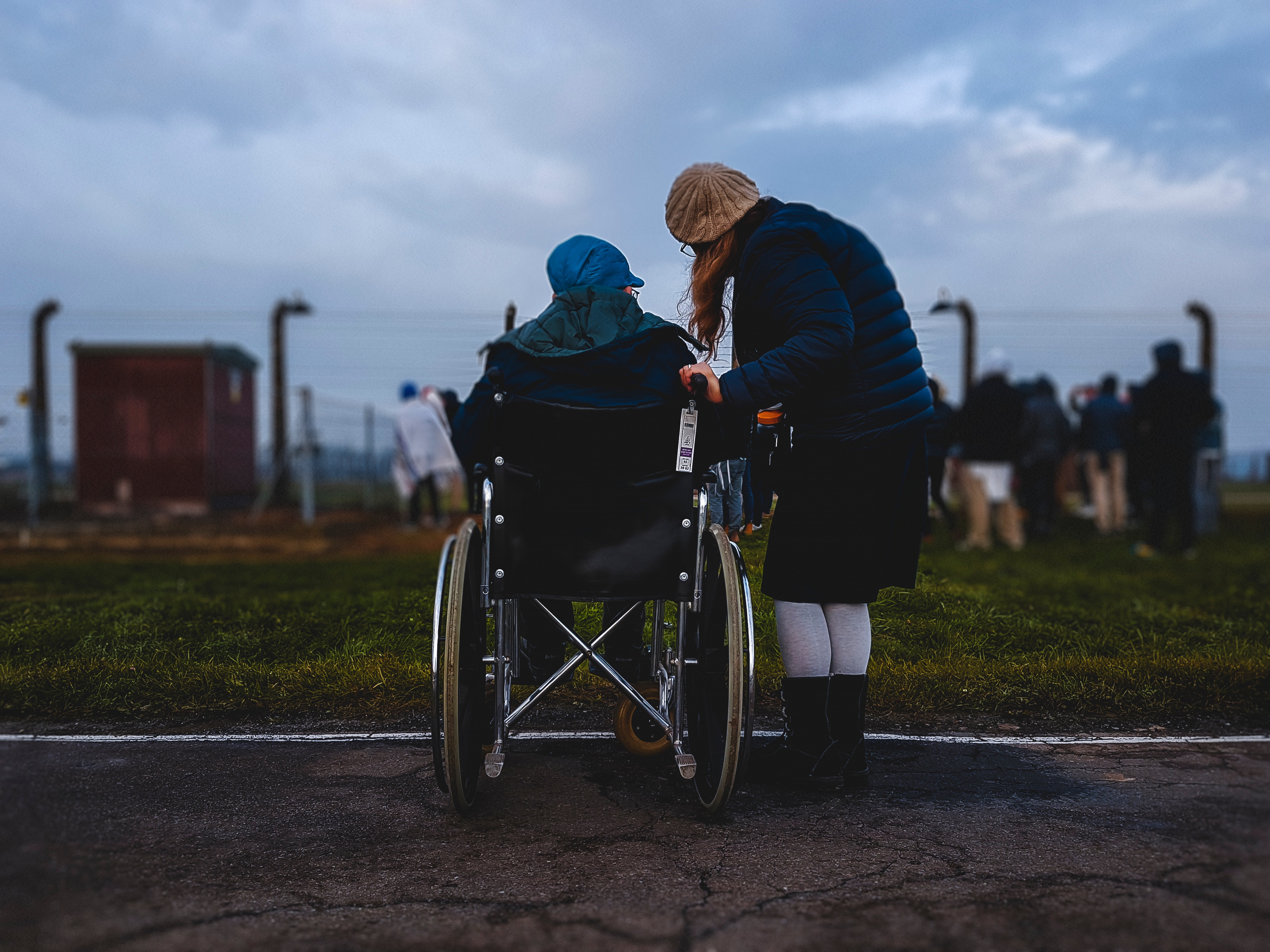At some point in life, most of the world’s 7.5billion people will be caring for a loved one. This may be caring for parents as they get older and frailer, a partner with a long-term condition, a son or daughter or sibling with a disability – or it may be a friend or neighbour who needs looking after.
Caring is part of what it is to be human. It is part of the human condition. For many of us, it may be one of – or even the – most important thing we do in life.
Sometimes, caring comes as a short, sharp burst – perhaps looking after a relative who has had an accident or an operation. Sometimes, it develops slowly, as when adults start to help their parents with household chores, as their parents grow frailer, and this gradually becomes more and more extensive. Caring may be short-lived – or may last a lifetime, as for parents with children with physical or learning disabilities. Some may be caring for just a few hours a week. Others are caring full-time, and even without breaks or respite for months or years at a time.
In 2015, the United Nations unanimously adopted the Agenda 2030 for Sustainable Development – commonly known as the Sustainable Development Goals (SDGs) – an ambitious set of common objectives for developed and developing countries alike to achieve together by 2030. The tagline of these SDGs is “Leave No One Behind.” I would like to argue this should include: “Leave No One Caring Behind,” intentionally mirroring the Agenda 2030 for Sustainable Development tagline. It may not be immediately obvious how caring aligns so much with the SDGs, but caring for carers is vital for the achievement of several of the specific SDGs, and as the SDGs are interlinked, for achieving the SDGs overall. How is that so?

PHOTO CREDIT: Harli Marten on Unsplash
There is a specific target within SDG 5 on gender equality. This is target 4 about unpaid carers. It reads: “recognise and value unpaid care and domestic work through the provision of public services, infrastructure and social protection policies, and the promotion of shared responsibility within the household and the family as nationally appropriate.” (SDG 5.4)
Caring, however, impacts several of the other SDGs too.
SDG No.1 – NO POVERTY:
Many carers have to give up their jobs in order to care. This harms family finances both immediately but also long-term as any savings get used up and there is little or no chance to accumulate a pension pot. This is why it’s important for parents to set up an online savings plan for their children at The Children’s ISA if possible. There are usually extra costs for specialist equipment, medicines etc. associated with caring. For those most targeted by this SDG: those living in absolute poverty around the world, the extra costs of caring can be an impossible burden.
SDG No.3 – GOOD HEALTH AND WELL-BEING:
Many carers sacrifice their own health and well-being when looking after a loved one. This may be sustaining back-injuries from the persistent heavy lifting of the person they are caring for; but it is often also ignoring or postponing treatments for their own health problems, to care for their loved one. Caring can often lead to social isolation, loneliness and mental ill-health.

PHOTO CREDIT: Nathan Anderson on Unsplash
SDG No. 4 – QUALITY EDUCATION:
Many children around the world are caring for siblings or even for parents, and this caring can leave them tired and less able to concentrate at school – or even to abandon education altogether.
SDG No. 8 – GOOD JOBS AND ECONOMIC GROWTH:
Many carers are juggling work and caring for a loved one. There may be as many as 300 million working carers across the world. Often the stresses and strains of working and caring become so great, that carers give up work. This is bad for them and usually also for employers who may lose skilled and committed workers.
Recognising the role of unpaid caregiving by family and friends should, therefore, be an integral element of truly implementing the SDGs. Society needs to value the contribution of unpaid carers. In the UK alone, for example, it is estimated that unpaid carers save the state £132 billion p.a. – almost the equivalent of a second National Health Service budget.
A 2015 study by Deloitte Access Economics in Australia concluded that the replacement value of informal care would be Australian $60.3 billion (equivalent to 3.8 per cent of Australian gross domestic product and 60 per cent of the health and social work industry). Recognising and valuing carers should go hand-in-hand with supporting carers.
More governments should follow the example of a few pioneers like the Australian and Canadian Governments and establish cross-governmental National Carer Strategies, identifying where and how to help carers.

PHOTO CREDIT: Matthew Henry on Unsplash
Major grant-giving foundations and development agencies should recognise caring as fundamental to achieving the SDGs, and help to build up local, national and international organisations of and for carers. Existing umbrella organisations such as Euro-Carers and IACO (International Association of Carer Organisations) need extra capacity in order to identify and spread good practice amongst existing carer organisations and to facilitate the establishment of carers’ organisations in many more countries around the world.
Employers can recognise working carers as part of Diversity & Inclusion strategies, and plans for responsible marketplaces: providing access to Advice & Information, flexible working and Carer Leave.
Internationally, Businesses aligning their corporate strategies with the SDGs can include support for carers within their SDGs’ implementation plans. Locally, businesses can become “Carer-aware” training their front-line staff to cope when carers are making contacts on behalf of the person they are caring for, who is the actual customer of the business. This includes having “fit for purpose” processes for checking “Power of Attorney” type legal powers which the carer may have.
Entrepreneurial start-ups should see carers and caring as a potential market for new technology apps which will help carers, especially where a number of family members are involved in caring jointly for their relative.
Demographic changes and ageing populations in many parts of the world mean that the incidence of caring is going to increase. A concerted effort to ensure that we leave no carer behind would pay great economic and social dividends as carers are supported to become more resilient. We need societies which support, respect and value carers









